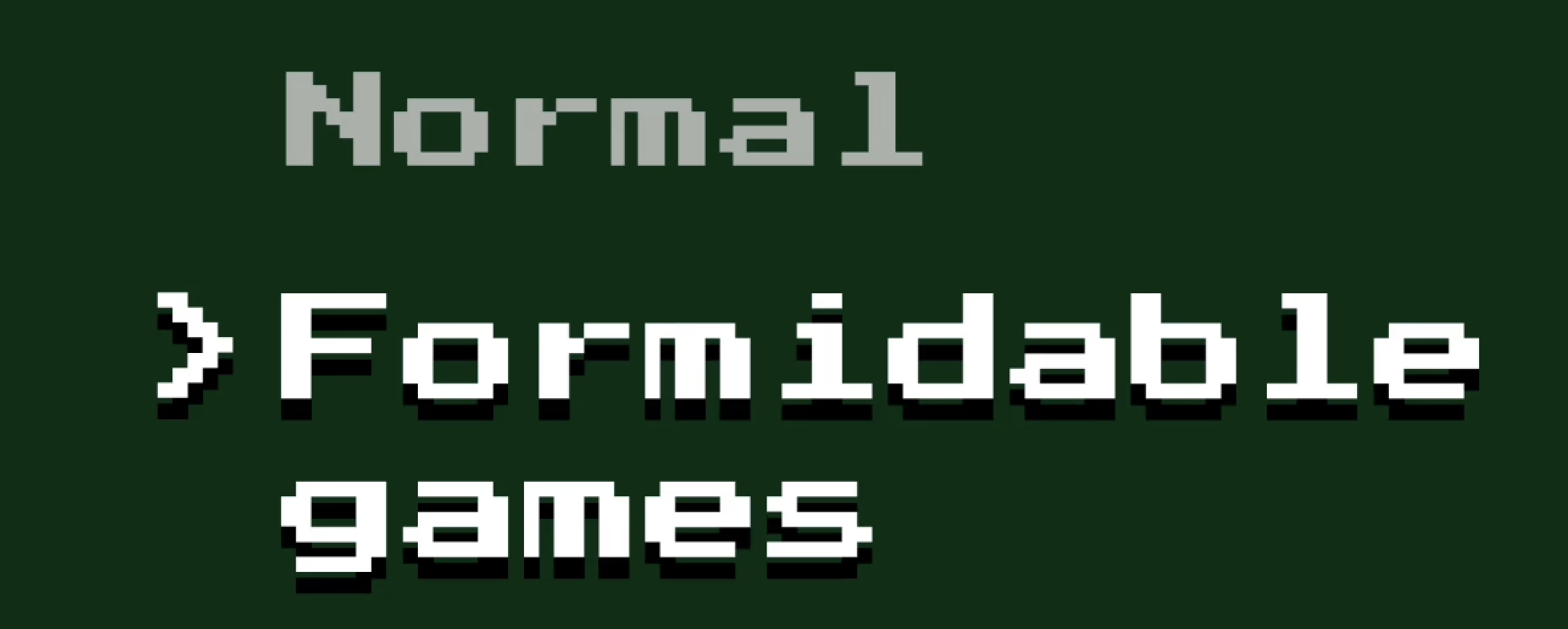After playing a variety of ‘difficult’ games, and analyzing them in class, one question which particularly interested me was “can a game be too difficult?”. To discuss this, I think it’s best to consider difficulty through three areas as defined by Patrick Jagoda in “Difficulty” (p. 191-220, 2018). I think that an overall answer to this is that it depends on the player/audience, which I will explain later.
In terms of mechanical difficulty, there are definitely some games that include game mechanics/objectives which are extremely hard, if not on the verge of impossible, to use/fulfil for most players. These games tend to require huge amounts of non-trivial effort to make progress, and in some cases, are too difficult for certain players to progress in at all, causing them to give up – this is what I would define as ‘too difficult’. However, I need to emphasize that this includes certain/most players, not all players. I haven’t come across a game that nobody has finished (unless there is no ending, in which case a game which nobody is ‘good at’ I guess?).
In terms of interpretive difficulty, I think that a game could be ‘too difficult’ if it requires extremely specific background knowledge or context, that is crucial to the game’s meaning/playability, yet is known by very few people. I can’t think of an example of a game like this, and I doubt a game which features such interpretive difficulty would be popular. Although it is possible that a game would be ‘too difficult’ based on interpretive difficulty, it again depends on the audience/player. Some players could have this knowledge and hence understand the game.
Finally, in terms of affective difficulty, I think that a game could be ‘too difficult’ if it induces feelings, emotions, or effects that leave the player unable to continue playing the game and unable to come back to the game. Again, this is very subjective, which leads me to my final point. I think that games can be too difficult (in any of the three areas of difficulty) on a personal level, however, I don’t know of any games which are ‘too difficult’ for everyone. This also leads to the question; could a game be ‘too difficult’ if the majority of people find it too difficult, or if everyone finds it too difficult?


Something this made me think of is level-making in games like Mario Maker or Geometry Dash. In order for user-created levels to be released to the public, the creator needs to complete it themselves, ensuring that the level is, in fact, beatable before being distributed out. Considering the two games’ platform genre and lack of a story, they lend themselves well to the user-created content, especially once gamers have completed the canonical levels and are looking for a greater challenge. I feel like it would be easy to create an impossible level, or a game that nobody can beat, but the requirement that it be beatable at all certainly prevents this and caps the difficulty of this content to whatever the creator themself is capable of.
Personally, I think that a game can be too difficult, especially if no one has ever beaten it. This post got me thinking about the limits of human capabilities. Someone could hypothetically develop a game that requires constant attention and precision for a straight 500 hours, but obviously that is far beyond the ability of any human. The only pragmatic answer to this ridiculous hypothetical would be if some sort of computer system were able to beat it (I’m not too well versed on the specifics of that). This example would fall under mechanical difficulty. This also reminds me of Cicada 3301 because that puzzle is game-like and is unbeaten as of 2022. If a game is too difficult and unbeatable, I feel like there is not much of a point past what you learn while trying to beat it. I feel like there is always an ultimate lesson by the end that the player learns, and we’re missing out on that if no one is able to actually beat the game.
I completely agree with the author’s description of difficulty. It was a point I was eager to discuss in class. We are so easily able to classify a game as being difficult, but in what context? Are the mechanisms of the game just inherently complex for the average user? Or is it my own personal experience with the game that is proving to be rather tedious. I love the notion of interpretive difficulty, as it helps a lot of us distinguish from the simple label of just being “difficult”.